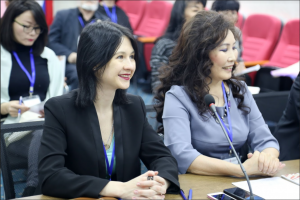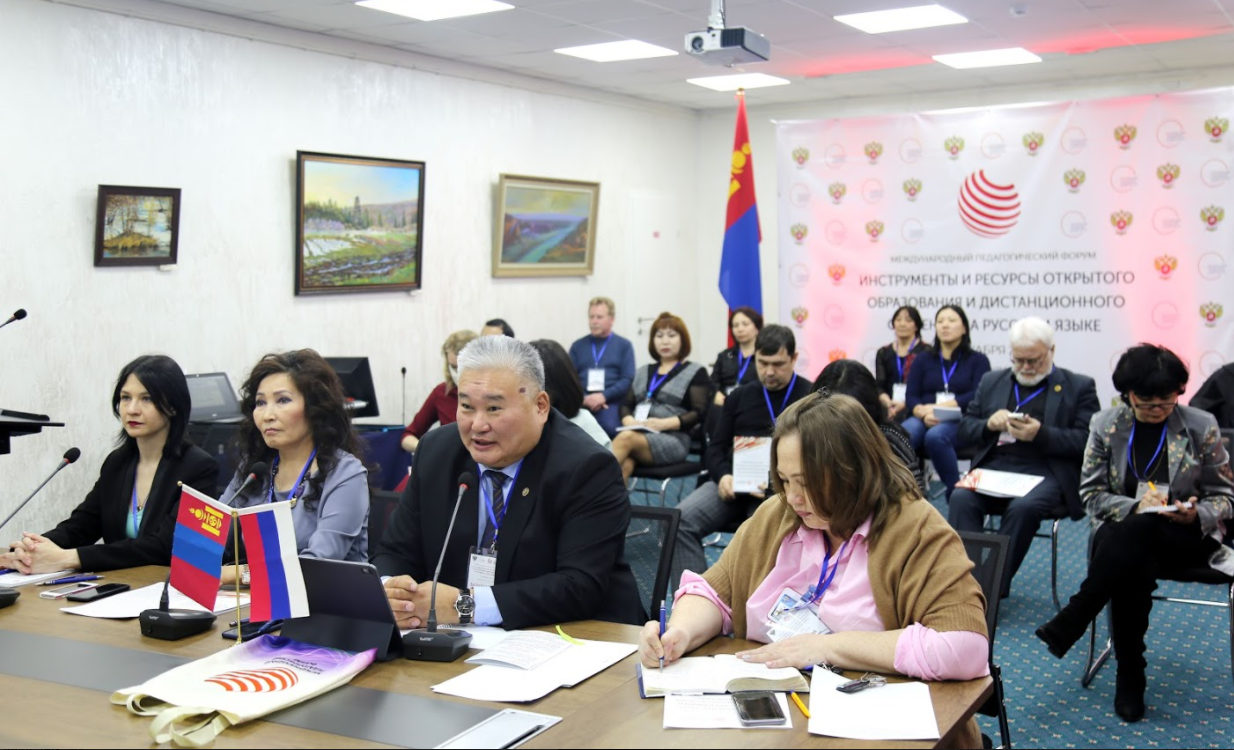On December 4, MCU and the Russian Center of Science and Culture in Ulan Bator hosted the International Pedagogical Forum “Tools and Resources of Open Education and Distance Learning in the Russian Language.” The Forum discussed the realia and issues of education digitalization in the context of distance learning, which the world has been forced to resort to, during the pandemic.
The Forum was held both in-person in Ulan Bator, Mongolia, and online, and welcomed more than 400 educators and experts in the field of education from 26 countries.
MCU’s First Vice-Rector Professor Elena Gevorkyan opened the meeting and underlined its significance.
Doctor Sosorbaram Erdenemaam, Professor of Mongolian State University of Education, delivered the opening speech and highlighted the issue of learning Russian in Mongolia. He revealed that 34% of the population of Mongolia spoke Russian in the 1990s.
The Forum’s speakers raised a wide range of issues relating to the didactics of the Russian language, such as the specifics of exploiting telecommunication technologies in the learning environment, which considers the country and regions’ local features and the educational traditions. Other speeches concerned new forms, resources, and tools of teaching Russian in the context of distance learning as well as the approaches to arranging and conducting remote training.
Within the sessions and discussion panels, the Forum’s participants shared their experience in the use of tools for distance learning in the Russian language. Doctor Li Xinmei, Department of Russian, Fudan University, Shanghai, discussed the organization of distance learning in China during the pandemic. Zhigmidbavuu Batnasan, Director of the Russian Language Training Center, Mongolia, elaborated on the education in her country and the pitfalls which educators in Mongolia had faced when organizing distance learning.

Workshops also attracted much attention. They were concerned with the means and ways of using virtual reality at lessons, and organization of project-based distance learning. MCU teaching staff’s section on online teaching of Russian as a foreign language for students with limited access to the Internet was in high demand among the teachers familiar with the conditions. Sergey Lesin, Head of the MCU’s Laboratory of Education Policy Research, presented a comprehensive review of the digital tools, which may be helpful for communication with the audience in the distance learning mode.
In conclusion, Amgalan Bazarkhandaev emphasized the productivity and relevance of the Forum and expressed a hope to see the participants in-person in the near future.
The Forum “Tools and Resources of Open Education and Distance Learning in the Russian Language” is the second of the three international forums dedicated to the pivotal reforms of the education system, namely, the implementation of distance learning at school. The first Forum discussed the teaching and learning in the Russian language. The next Forum will be dedicated to the most prominent and efficient practices of distance learning in the Russian language.

